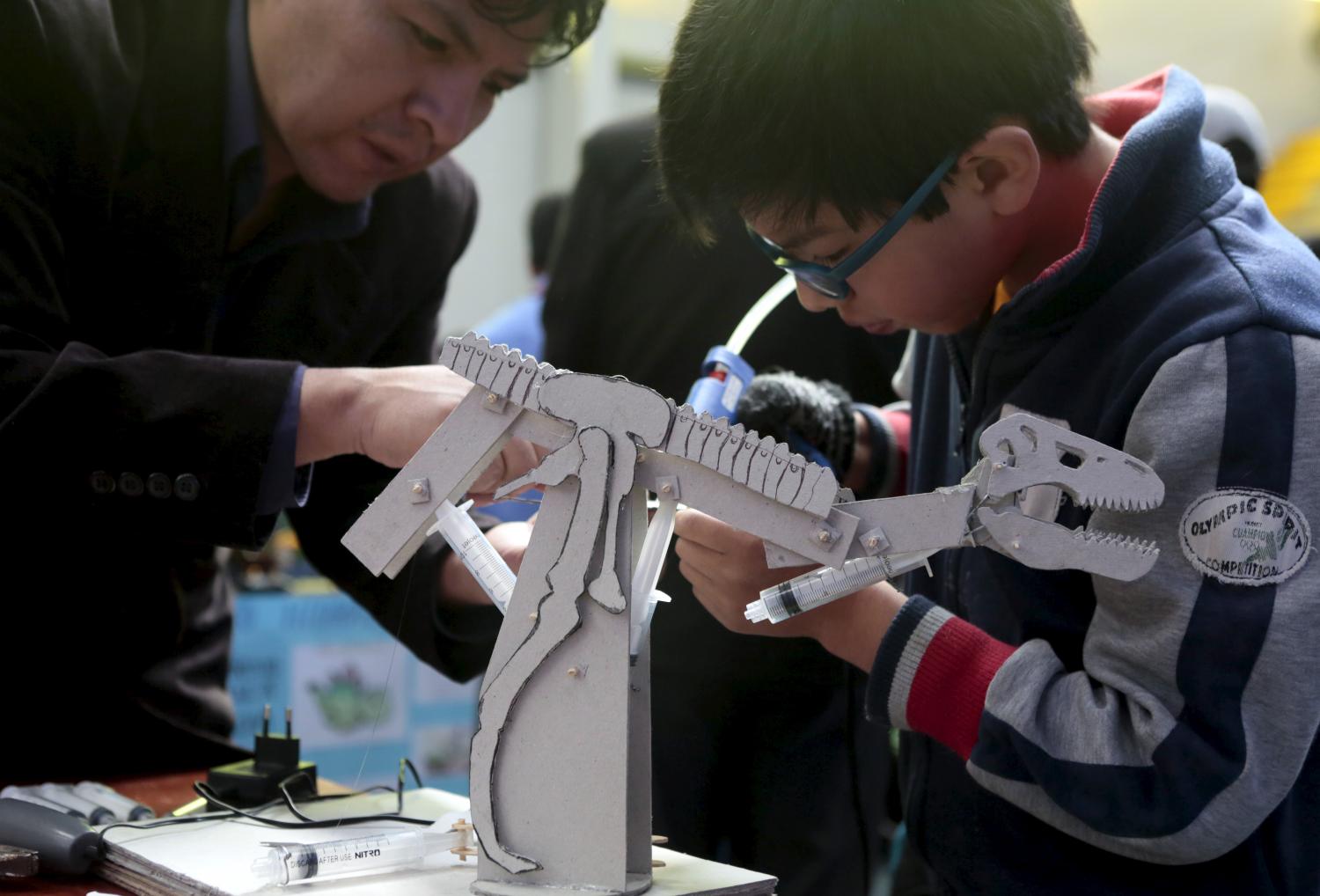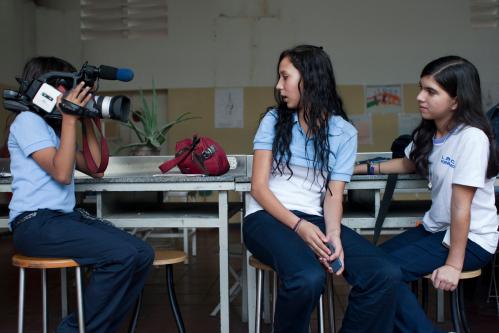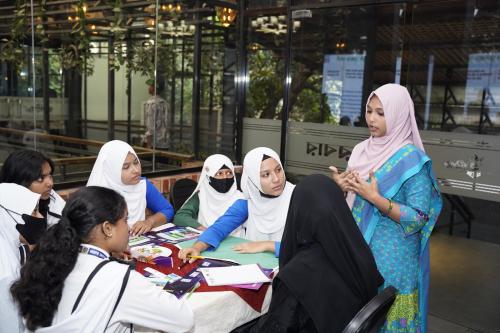In the lead up to the Center for Universal Education’s annual research and policy symposium “Citizens of the Future: Innovations to Leapfrog Global Education” May 21, 2018, guest authors from the education innovations community will contribute their unique insights to this blog series on the topic. Access all of our content on innovations here.
Nearly a year ago, I met Tarun Cherukuri at Indus Action’s head office in New Delhi, India. The office was in an apartment building nestled away in a quiet, residential corner of the city. When I arrived at 9 a.m., it was already jam-packed with community volunteers chattering away on phones, going about the daily business of empowering parents to take advantage of government policies designed to increase education equity across India.
Tarun is an alumnus of Teach For India who founded Indus Action during his final semester at graduate school, immediately after completing the two-year teaching fellowship. As a classroom teacher, he realized that many families of the children he taught simply weren’t aware of their rights under the Right to Education Act in India, which reserves 25 percent of private school seats for children from the country’s most under-resourced communities. Witnessing firsthand the gap between this progressive policy and its implementation, Tarun was inspired to turn his teaching experience into entrepreneurial action. Indus Action mobilizes volunteers, community champions, and like-minded organizations, to work together to inform parents of their rights and how they can apply for school seats. Since 2013, Indus Action has directly enrolled nearly 20,000 children into schools in New Delhi and enabled over 30,000 families to access this legislated right across five states in India.
Tarun is one of about 600 current and former teachers of partner organizations in the Teach For All global network who are starting and scaling solutions to problems they encountered in their classrooms. Known as “teacherpreneurs”, they include people like Tom Ravenscroft, who founded Enabling Enterprise, an award-winning organization in the U.K. that prepares students for the future labor market; and Florencia Mingo, co-founder of one of Chile’s leading teacher development initiatives, Impulso Docente.
None of these young innovators started teaching with the intention of becoming a social entrepreneur. Like most alumni of Teach For All network partners, teaching was a profound and transformative experience for each of them, instilling a firm belief in student potential, working with families and understanding the complexity of issues at a community level. The classroom also provided the inspiration and launch pad for the fully-grown social enterprises that they lead today.
Teachers like Tarun, Tom, and Florencia are set apart from others who seek solutions to the global education crisis because they deeply understand the reality, complexity, and scale of the problem daily from serving on the front line in under-resourced classrooms around the world. Coupled with the natural creativity that comes from being a teacher, they are ideally positioned to develop solutions in new and innovative ways. Therefore, an important strategy for addressing the global education crisis will come from identifying and fostering teacherpreneurs.
As a Business Studies teacher for the Teach First program, Tom realized that the curriculum he was teaching was hugely disconnected from the labor market and thus failing to equip his students for success. To Tom, it was clear that enterprise skills should not be considered a “nice-to-have,” but rather a core component of learning, alongside literacy and numeracy. With Enabling Enterprise, he created a curriculum and measurement system that teaches these skills across all age ranges, preparing students for a 21st century workforce. Today, the organization works with more than 85,000 students across the U.K.
During her two years as an Enseña Chile teaching participant, Florencia realized that while she was receiving regular professional development support from the program, the traditionally-trained teachers at her placement school received no on-going support after completing their initial teacher training. Recognizing this gap, she developed a small pilot of high-quality teacher training sessions which were led by the school’s leading practitioners. The sessions were enhanced with coaching to turn the theory into bite-sized teacher actions, which the teachers practiced and reflected on weekly within the group. The teachers who took part saw an improvement in their practice which was observed weekly, and also in their motivation and morale, from receiving dedicated professional support and belonging to a peer cohort. Today Impulso Docente works with nearly 2,500 teachers across five regions of Chile.
To kick-start the journeys of this growing number of teacherpreneurs, Teach For All network partners like Teach For India, Teach First, and Enseña Chile are providing local start-up support to help them turn their ideas into action. Teach For India recently launched InnovatED, an education incubator to support alumni like Tarun. Florencia and her co-founders were awarded start-up funding by Enseña Chile’s Alumni Innovation Challenge, and Teach First established an Innovation Unit that supports alumni like Tom to launch and scale their ideas.
At an international level, Teach For All’s Global Innovation Hub (iHub) was recently listed as one of 15 innovation spotters by the Center for Universal Education at Brookings. Charged with cataloging and connecting this global community of teacherpreneurs, Teach For All is creating space for them to share solutions and troubleshoot challenges, accelerating their collective leadership to help leapfrog progress in education so that all children can fulfill their potential.
The Brookings Institution is committed to quality, independence, and impact.
We are supported by a diverse array of funders. In line with our values and policies, each Brookings publication represents the sole views of its author(s).







Commentary
Identifying and fostering ‘teacherpreneurs’ is key to solving the global education crisis
February 21, 2018